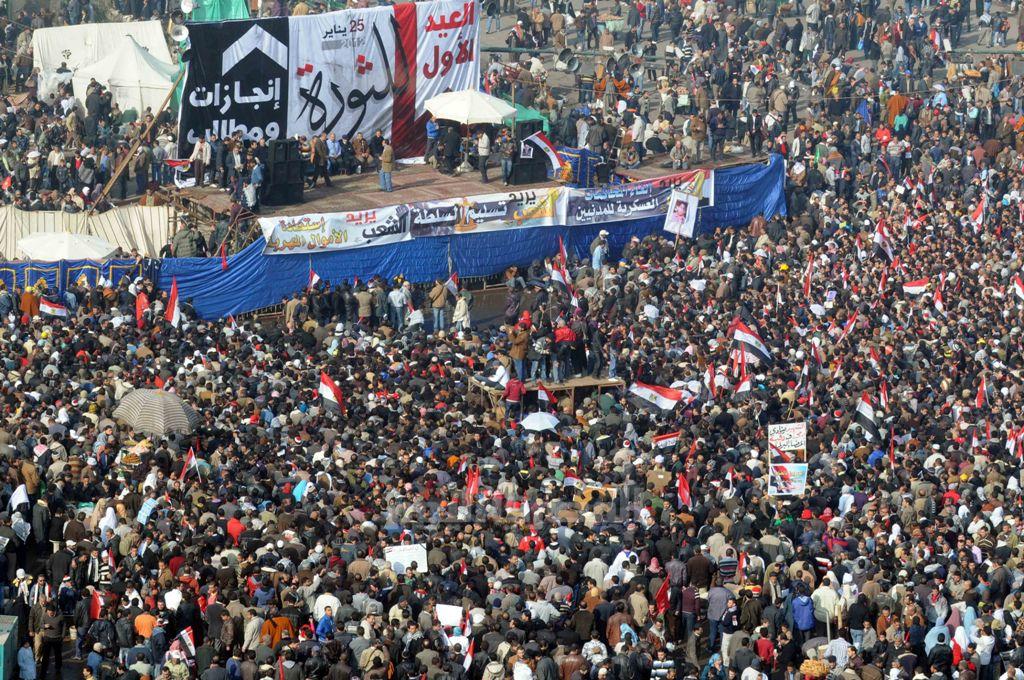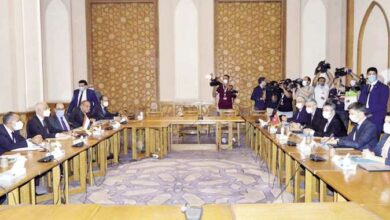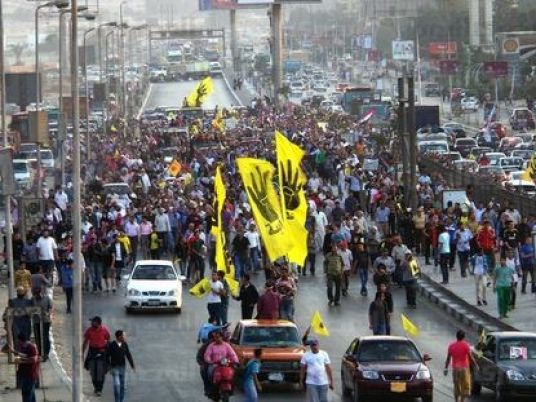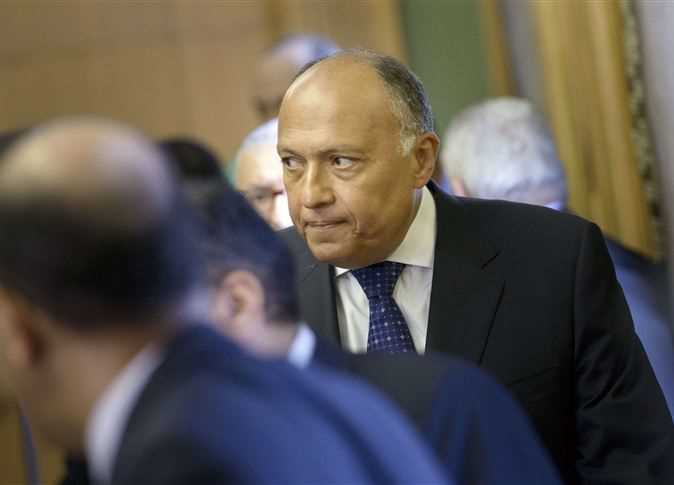When I arrived in Heliopolis on Wednesday evening, protesters against President Mohamed Morsy were congregated in a square at the bottom of Merghany Street, apparently waiting for more numbers to arrive so that they could regroup and retake the presidential palace.
There was general disarray, with small pockets of people standing at various places in the adjacent Roxy Square, apparently in shock at the way their sit-in at the presidential palace had been dispersed summarily by members of the Muslim Brotherhood earlier in the afternoon.
Small marches trickled in, and were met with applause and cheering by those already in the square. Two startled bearded men on a motorbike were chased by a stick-bearing youth screaming, “you bastards!” at them. The 125 cc machine struggled and sputtered, but they escaped while protesters remonstrated with the youth.
I wandered up Merghany Street. A man in a leather jacket holding a huge stick marched up rhythmically beating the ground with it while he roared, “after today there will be no more Ikhwan” at nobody in particular. He was met by a man who implored him to turn around because their numbers were not big enough and they were waiting for the others to come.
I crossed an invisible line and the topography changed suddenly, and almost imperceptibly, to a nearly all male and mostly bearded and middle-aged crowd. This was where the pro-Morsy camp began. There was no clear delineation between the two sides.
Acting against their own advice the anti-Morsi protesters began marching on the pros, and the inevitable started; huge unidentifiable bangs, Molotov cocktails rocks. They were chased down immediately through Heliopolis’ normally sedate and charming side streets with roars of "God is great." The real battle began in the square where I had arrived, and the smog of dust and Molotov fumes progressed up and down Khalifa Maamoun Street, south of Roxy Square. There was teargas, too, although the police at this point were invisible.
Three police trucks arrived on the anti-Morsy side for a reason known only to them and protesters immediately scrambled all over them. Two fled, panicked, another was surrounded and a youth climbed onto its roof while below another removed the fire hose again for reasons that were
not clear.
With nearly two years of experience, Egyptian protesters are well versed in street fighting and events soon fell into the familiar rhythm of advance and retreat. Anti-Morsy protesters bolstered themselves with chants old (the people (still) want the downfall of the regime) and new (Jika). There was a new flag leading them into battle, too, a delicately drawn tree that is the logo of pro-democracy leader Mohamed ElBaradei’s Dostour Party.
We went to the pro-Morsy side and found an identical scene to that we had left; people were breaking pavements to form missiles, motorbikes ferrying the injured to ambulances, spectators holding forth. The difference was in their appearance and organization. They had a small car with an enormous gramophone-style loudspeaker on its roof blaring out instructions. When a group of protesters arrived holding a terrified boy by the scruff of his neck stormed in the disembodied voice instructed them to hand him over to the “organizational committee”. I also saw groups of men asking people for their Freedom and Justice identity cards.
The organizational committee was at one of the entrances to the presidential palace, and turned out to be a makeshift detention centre surrounded by a cordon of riot police and a sea of gawking spectators. They told us that there were two “thugs” being held there. The Brotherhood member attempted to get us in. Negotiation was with the bearded, suited men on one side of the cordon rather than the central security forces who were all junior soldiers without an officer in sight.
When they learnt we were journalists, onlookers standing on a low wall lining the grassy area by the entrance to the palace became incensed, and demanded that we – untrustworthy liars – not be allowed in. The only trustworthy satellite channel is (the Muslim Brotherhood-owned) Masr 25 channel, they said. We are not television media, we protested. We’re print journalists, we said.
“There aren’t any respectable newspapers. They’re all trash,” we were told, and that pretty much put an end to that discussion. “Maa salama! [Goodbye!],” they said in a smug sing song voice as tension rose slightly and we decided that this would be an appropriate moment to push off.
Many in the pro-Morsy camp believe that their opponents are alcohol drinking moral degenerates who are funded by Western powers. Two men told us that they had found dollars in the possession of protesters they had captured. They believe also that local media is in conspiracy against them, and that Tuesday’s newspaper strike is evidence of this.
Class is an important factor here, too – perhaps as important as the religious divide ostensibly separating the two camps. The pro-Morsy camp visible yesterday was mostly made up of middle-aged men from a lower to middle class background in sturdy practical dad slacks or galaleeb. They jogged into battle, breathlessly chanting, some of them who had come straight from work holding plastic bags and suits.
The antis were a diverse mix including hip youngsters, women in jeans and so on as well as protesters who looked exactly like the other side.
In addition to claiming their monopoly on Islam, the pro-Morsys seem genuinely to believe that there exists only one version of the “real” Egypt and that they are it. It explains their bafflement over opposition to the constitution and the lack of diversity amongst its drafters.
There is a video online of the moment Morsy supporters attacked the palace sit-in.
An incensed man is seen waving a box of processed cheese he found in a tent in the air while he rants, “Hamdeen Sabbahi! (leftist former presidential candidate) ElBaradei! Processed cheese you scum!?!”
The exact link between processed cheese and Egypt’s opposition is a riddle known only to this gentleman, and he was perhaps in an overexcited state, but it exemplifies this suspicion of the familiar as something alien and nefarious.




